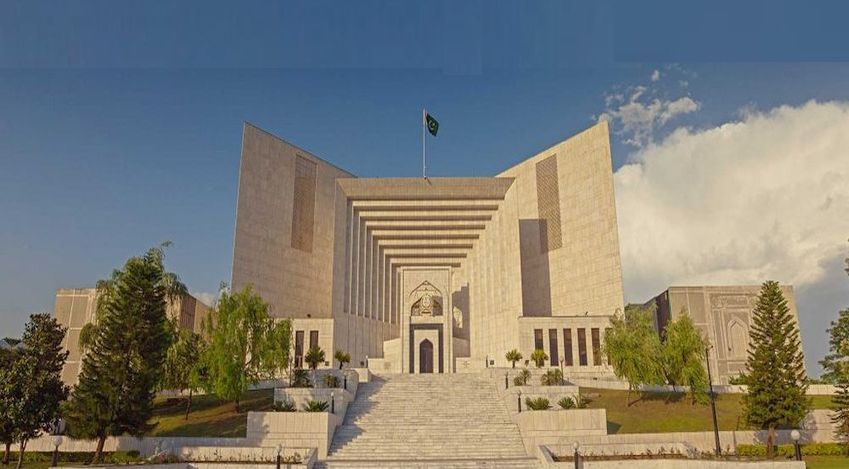The Courts should provide Protection against Wrongful Convictions due on Weak Circumstantial Evidence --- Supreme Court of Pakistan Acquits accused in Murder Case
Islamabad 30-01-2025: In a landmark ruling, the Supreme Court of Pakistan acquitted Sikandar Ali alias Bhola, who was previously convicted of murder under Section 302(b) of the Pakistan Penal Code (PPC). The apex Court overturned the conviction, citing serious doubts in the prosecution’s case, unreliable witness testimony, and a lack of forensic evidence.
Sikandar Ali was initially convicted by the Additional Sessions Judge, Islamabad-West, in connection with the murder of Muhammad Asif. The trial Court sentenced him to life imprisonment and imposed a fine of Rs. 500,000/- as compensation under Section 544-A Cr.P.C. His conviction was subsequently upheld by the Islamabad High Court on November 30, 2020.
During the final appeal hearing, the Supreme Court of Pakistan scrutinized the prosecution’s case and found multiple inconsistencies, ultimately granting the benefit of doubt to the accused.
The Court reaffirmed that in cases relying on circumstantial evidence, all facts must form an unbroken chain directly linking the accused to the crime. However, in this case, gaps in the evidence weakened the prosecution’s claims.
- Ch. Barkat Ali Vs. Major Karam Elahi Zia (1992 SCMR 1047)
- Sarfraz Khan Vs. The State (1996 SCMR 188)
The FIR was lodged four days after the alleged murder, raising concerns over the authenticity and reliability of the allegations. The Supreme Court of Pakistan stressed that delays in registering an FIR without valid justification cast doubts on the case.
- Altaf Hussain Vs. Fakhar Hussain (2008 SCMR 1103)
The prime witness (Mst. Faiza Bibi), daughter of the deceased, implicated the petitioner six days after the incident, yet her conduct did not align with a natural reaction to a murder in her household. The Court deemed her statement untrustworthy.
- Liaquat Ali Vs. The State (2008 SCMR 95)
- Zafar Vs. The State (2018 SCMR 326)
The prosecution relied heavily on a judicial confession made by co-accused Mst. Shazia Kausar (since deceased), which placed sole responsibility on the Petitioner. However, the Supreme Court of Pakistan held that exculpatory confessions (where blame is shifted) require corroborative evidence, which was missing in this case.
- Zafar Vs. The State (2018 SCMR 326)
Lack of Forensic Evidence Further Weakened the Case:
- No forensic tests were conducted on the alleged murder weapon (a rope) to confirm its use in the crime.
- The PFSA report found no poison or drugs in the victim’s body, contradicting the prosecution’s theory.
- The absence of bloodstains or forensic linkage to the accused created reasonable doubt.
- Pathan Vs. The State (2015 SCMR 315)
The alleged motive (an illicit relationship between the accused and the victim’s wife) was not mentioned in the FIR but was introduced six days later. The Court held that a delayed introduction of motive reduces its credibility.
- Altaf Hussain Vs. Fakhar Hussain (2008 SCMR 1103)
Given the multiple contradictions and lack of conclusive proof, the Supreme Court of Pakistan set aside the conviction and ordered the immediate release of Sikandar Ali alias Bhola.
The Petition converted into an appeal and allowed. The prosecution failed to prove guilt beyond a reasonable doubt. Any reasonable doubt must favor the accused, per established legal precedents.
This decision reinforces the principle that mere suspicion is not enough for conviction and that the burden of proof rests solely on the prosecution. The ruling sets a strong precedent for fair trials and reaffirms the importance of forensic evidence and timely FIR registration in criminal cases.
Powered by Froala Editor








